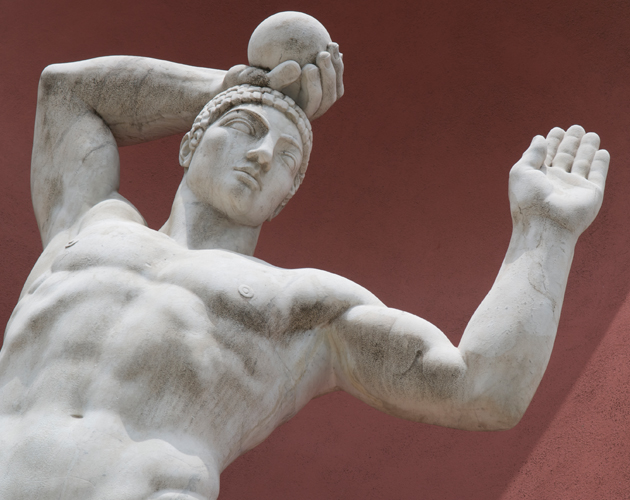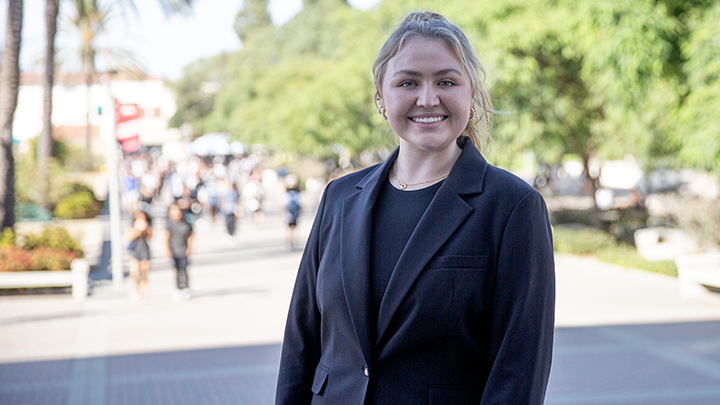Olympic Glory Redux

To the untrained eye, it looks like any other open field in the expanse of the Turkish coastline. But Robert Mechikoff wasn’t wandering through the area without intention. He knew the overgrown vegetation disguised something special. What he didn’t know was that his discovery would rewrite ancient sports history.
Mechikoff, Ph.D., a professor of exercise and nutritional sciences at San Diego State, had long been captivated by the Olympic Games. After attending an American college in Athens, Mechikoff began researching the history of the world’s oldest and largest pageant of athletic skill.
His research would pay off years later on the shores of the Aegean Sea. Below 2,000 years of plant growth lay the once powerful city of Alexandria Troas in present-day Turkey. The city’s ancient stadium, which likely dates back to circa 100 B.C., was originally discovered by German archaeologists in the 1970s. Not until 2009 were the first researchers—Mechikoff and his colleagues—permitted to excavate the site.
Little was known about the buried stadium. The original discovery was identified as a Roman Hippodrome in the shape of a horseshoe, which would have hosted chariot races and gladiator competitions. Mechikoff and his colleagues had another theory.
They didn’t think the stadium was Roman at all, but an original Greek athletic venue. However, one key piece was missing—an exterior wall enclosing the stadium called a sphendone. After several weeks of surveying the area, hacking through brush and spiders the size of tennis balls, Mechikoff had a eureka moment.
“On the second to last day of work, my instincts replaced my scientific training and I began to search for where the sphendone would be,” said Mechikoff. “There, under centuries of vegetation, a small dark shape appeared. It was the missing link, the sphendone.”
Now that the researchers can identify the stadium as Greek, they want to test a second hypo-thesis. “Because of its proximity to Troy, it’s quite possible that this stadium featured some of the infamous Trojan warriors,” Mechikoff said.
Down the road, he hopes to see the site restored in all its glory—a stage to recreate the athletic competitions of ancient times for a modern audience.



